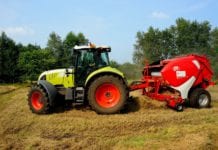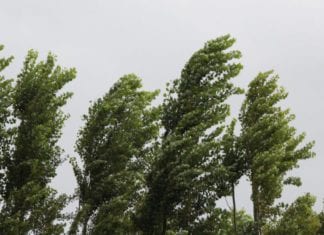The Minster for Agriculture has urged farmers to take steps to protect their livestock during the hot weather today and in the coming days.
Minister Charlie McConalogue said that while the recent good weather is welcomed by the farming community, it must be remembered that high temperatures can cause significant stress for livestock.
He said that it is important that farmers consider the extra steps needed to take care of their animals in these circumstances, making them comfortable and avoiding serious health and welfare problems arising due to the heat
Some ways of reducing the impact of high temperatures on animals include ensuring plentiful supply of drinking water.
The number of watering points and water flow may have to be increased in hot weather as demand increases.
Drinking points should be checked be more often to ensure they are working and that the pressure is adequate.
Minister McConalogue said that stock should be monitored for signs of problems with water supply such as queuing or crowding at water points and farmers should ensure that there is access to suitable shade or shelter.
Vulnerable animals such as very young, old, or sick animals may need to be moved to a location with additional shade or shelter where they can be monitored more closely.
Holding areas for livestock should also have shaded areas available where possible and holding times minimised and outdoor poultry should have access to shade.
“Outdoor pigs require access to a wallow to cool down especially if the temperature is above 25° C as they are particularly vulnerable to heat stress,” the Department of Agriculture has advised.
“Movement or handling of cattle during hot weather can increase their body temperature by 0.5 to 3.5° C, causing heat stress.
“Minimise handling in hot weather – if necessary, ensure it is done as early or late in the day as possible to coincide with cooler temperatures. Avoid transporting animals in hot weather where possible.”
If transport is necessary, farmers should plan to minimise journey length, transport during cooler hours and reduce the stocking density to allow for more airflow inside the vehicle.
Health issues and heat stress
Livestock should always be checked more frequently in hot weather. Animals at a higher risk of heat stress include young, dark-coloured or pregnant animals, animals recovering from illness, pigs and high-producing dairy cows.
Signs of heat stress include faster breathing or panting; loss of appetite; increased water intake; drooling; listlessness or lethargy; and in severe cases, animals may become unconscious.
If you suspect an animal may be heat stressed, it is vital to act quickly. Steps to manage heat stressed animals include moving them to shade or shelter; offering cool water; using sprinklers for cattle, pigs and horses, or allow them to stand in water; increase ventilation in housed species such as pigs and poultry; and reduce the stocking density to allow animals to lie out. If there is no improvement, seek veterinary assistance without delay.













